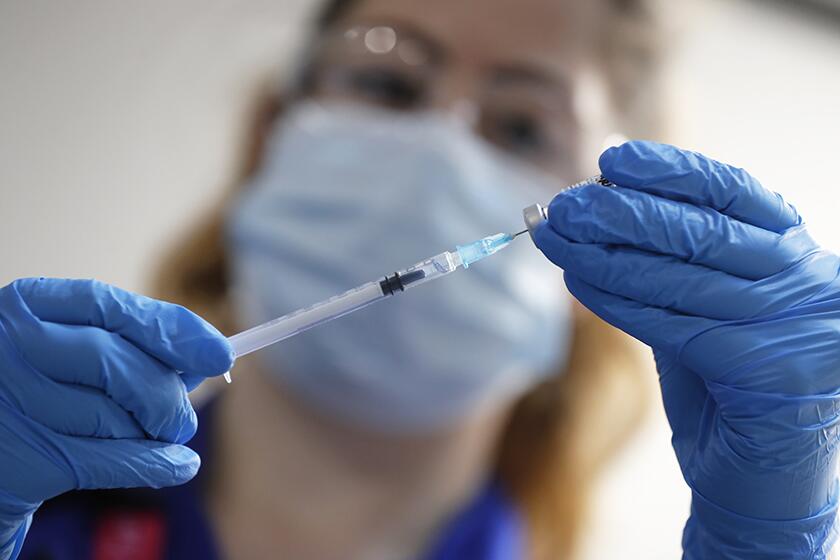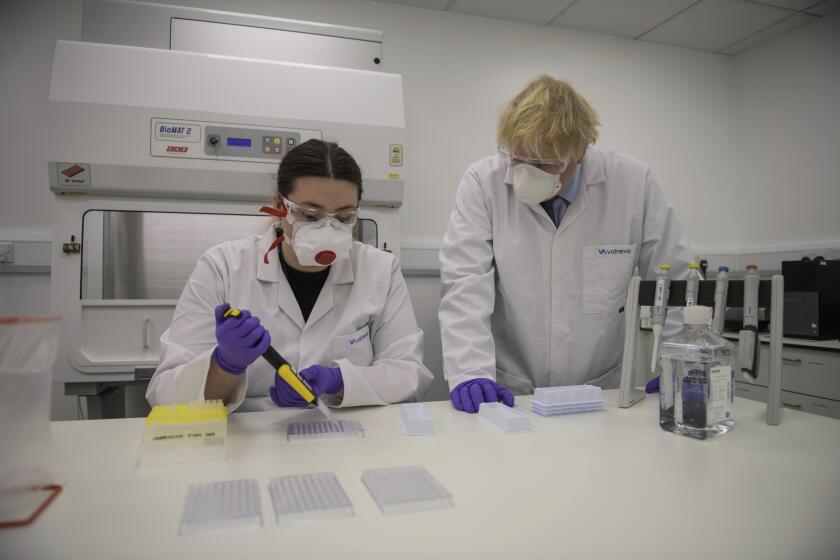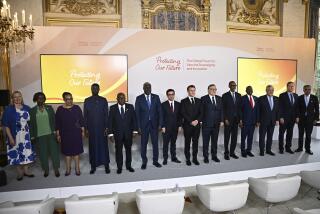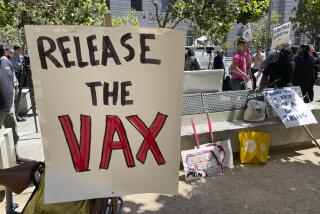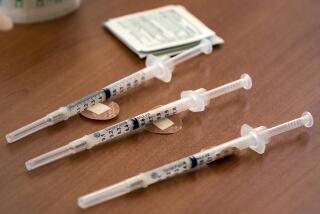Africa will pay more for Russian COVID vaccine than for Oxford-AstraZeneca, Novavax shots
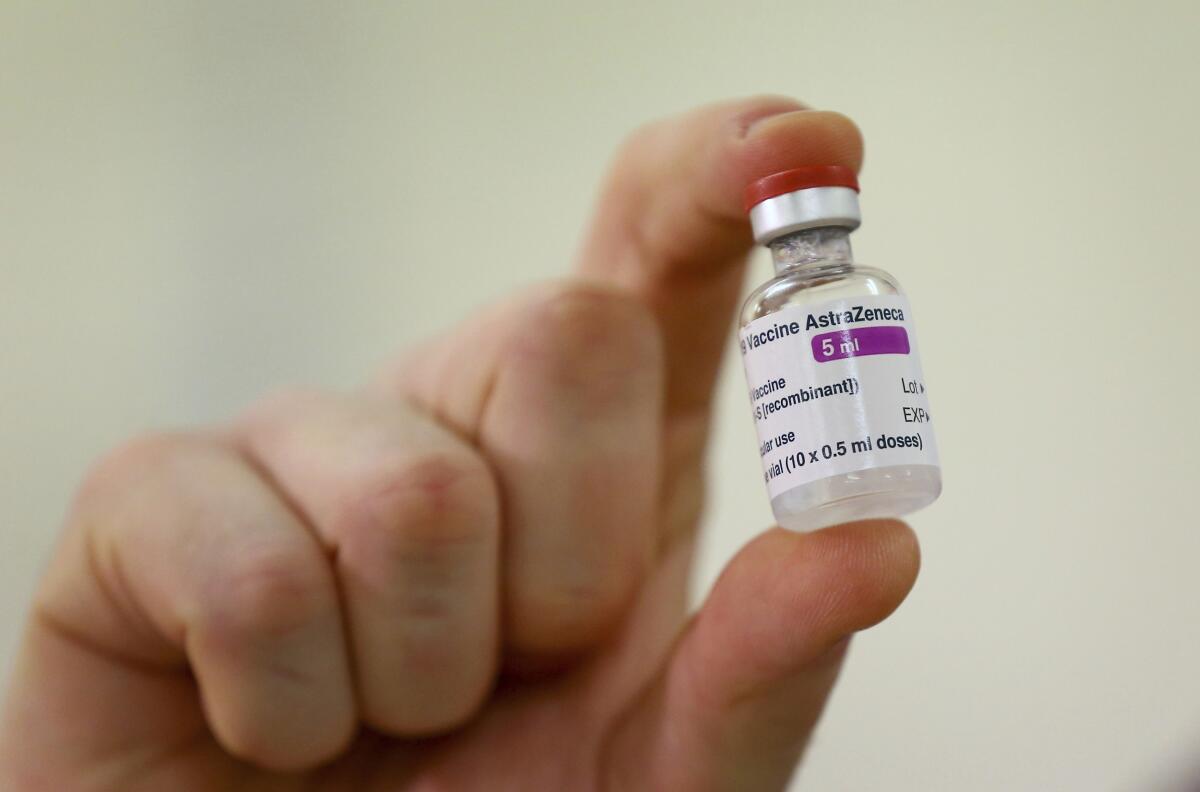
- Share via
The African Union will pay three times more for Russia’s Sputnik V vaccine than it is paying for the Oxford/AstraZeneca and Novavax vaccines, according to people familiar with the procurement process.
The $9.75 price per dose for 300 million doses of the Russian vaccine, developed by the state-run Gamaleya Institute, undermines Moscow’s argument that it is offering affordable vaccinations to countries priced out of deals with Western pharmaceutical groups.
The deals struck by the AU, which is emerging as one of the world’s biggest vaccine buyers, provide a rare insight into how vaccine prices compare, a subject manufacturers have sought to keep out of the spotlight.
“Africa is a key market for Sputnik V,” said the Russian Direct Investment Fund, a Kremlin-run wealth fund overseeing Sputnik V’s foreign sales. “Our international price of just under $10 per dose is the same for all markets.”
Sputnik V recipients require two doses, meaning the cost per individual is just under $20.
RDIF has boasted that the Russian vaccine’s cost is “two times lower than that of other vaccines with similar efficacy rate,” and that its deals with poorer countries stand in contrast to those of other manufacturers, who have prioritized wealthy nations.
Kirill Dmitriev, RDIF’s chief executive, told the Financial Times: “Countries really see, you know, tremendous double standards from some of the Western nations who promised equal access and basically are just buying everything for themselves. And they see significant inequity in vaccine distribution to favor wealthy nations. ... It’s frankly unethical.”
The $9.75 per-dose price of the Russian vaccine — which will not start arriving in Africa until May — is much greater, however, compared with the $3 a dose the AU has agreed on for the Oxford/AstraZeneca and Novavax vaccines made by the Serum Institute of India, according to the people familiar with AU procurement.
The AU will pay $6.75 a dose for the BioNTech-Pfizer vaccine and $10 for Johnson & Johnson’s, a single-dose product. It is not purchasing any of Moderna’s two-shot inoculation, priced at $32 to $37 per dose.
In addition to 300 million Sputnik V doses, the AU says it has acquired provisional orders for 670 million doses of other vaccines. It is buying vaccines on behalf of member states to supplement supplies from Covax, a facility backed by the World Health Organization that is providing vaccines for free to 92 countries, including many in Africa.
The AU declined to comment on pricing.
Pfizer says it has begun studying the effects of a third dose of its COVID-19 vaccine, part of a strategy to combat new versions of the coronavirus.
RDIF has said its vaccine’s 92% efficacy, cost and ease of storage are “unique.” But scientists at the U.S. Food and Drug Administration this week confirmed data showing that J&J’s vaccine — which can also be stored in a normal refrigerator — prevented severe or critical disease in 86% of U.S. participants and 82% in South Africa, where the 501.V2 variant is prevalent. Because only one shot of the J&J vaccine is required, at $10 it would be nearly half the price of Sputnik V.
The Oxford-AstraZeneca vaccine demonstrated efficacy of about 70% in clinical trials, while the BioNTech-Pfizer product, which requires ultra-cold storage, showed efficacy of 95%.
African governments have been disappointed at the slow pace of vaccine arrivals and, in a few cases, have struck expensive side deals to secure early supplies. South Africa ordered 1.5 million doses of the Oxford-AstraZeneca vaccine from the Serum Institute of India at $5.25 a dose, though it later halted rollout after discovering that the shot might not prevent mild and moderate cases caused by the 501.V2 variant first discovered in the country.
This week, the first AstraZeneca vaccine supplied by Covax arrived in Africa when Ghana took delivery of 600,000 doses. Covax said it was paying $3 per dose of the vaccine, manufactured in India.
Covax had originally hoped to distribute 15 million doses of vaccine to Africa this month, with a further 40 million arriving in March, though that timetable appears to have slipped. It has promised to provide doses sufficient to inoculate at least 20% of the population of qualifying countries by the end of the year.
Scotland’s COVID-19 vaccination program has led to a sharp drop in hospitalizations, offering some real-world evidence of the shots’ impact.
David Malpass, president of the World Bank, said it was true that manufacturers were diverting supplies toward richer countries that were paying more. He called for less secrecy.
“We need transparency of their contracts with Covax and the doses that are available from Covax for developing countries,” he said. “Those will be key in getting the delivery schedules.”
African governments can access a $2-billion vaccine facility provided by the Cairo-based African Export-Import Bank as well as funding from the World Bank.
China has supplied few doses to Africa so far, raising questions about possible Chinese supply constraints. Beijing this month donated 200,000 doses to Zimbabwe, a near-bankrupt country with which it has close but strained relations.
BioNTech said it would not comment on pricing but emphasized that it had offered its vaccine to many low- and middle-income countries at cost. The company added that even high-income countries were getting a price that was “significantly discounted from normal benchmarks” during the pandemic.
© The Financial Times Ltd. 2021. All rights reserved. FT and Financial Times are trademarks of the Financial Times Ltd. Not to be redistributed, copied or modified in any way.
More to Read
Sign up for Essential California
The most important California stories and recommendations in your inbox every morning.
You may occasionally receive promotional content from the Los Angeles Times.
